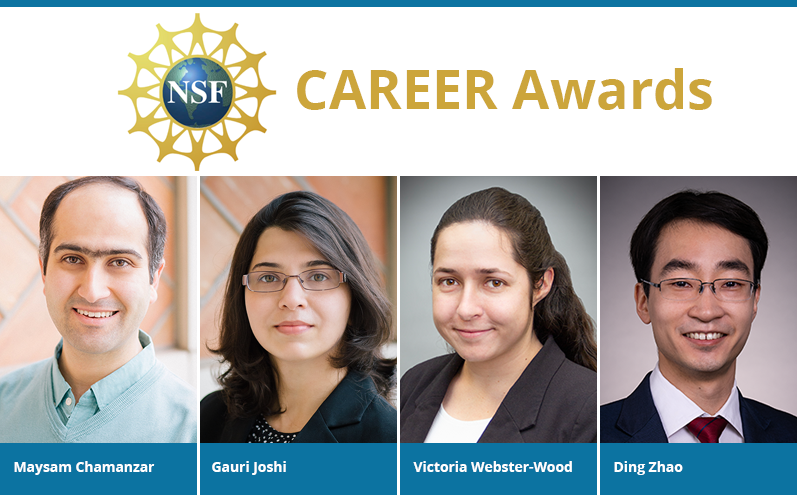NSF CAREER grants awarded to engineering faculty
Four engineering faculty received NSF CAREER awards to support their education and research goals.
Four College of Engineering faculty members have been awarded CAREER awards by the National Science Foundation (NSF). The awards, which are part of the Faculty Early Career Development Program, are given to people early in their careers who are believed to play a part in furthering their area of science. The awards support their research and educational goals.

Source: College of Engineering
Maysam Chamanzar, an assistant professor in the department of electrical and computer engineering, was awarded an NSF CAREER grant for his work on recording neural signals. Chamanzar’s research will present a new kind of neural probe that uses graphene to convert brain signals to electromagnetic waves, or light. This will increase the number of recording channels while keeping the size of the probe small (a large probe could cause brain damage). Chamanzar says this research could reveal treatments for brain disorders like epilepsy, Parkinson’s and Alzheimer’s.
Gauri Joshi, an assistant professor in the department of electrical and computer engineering, was awarded a CAREER grant for her work on machine learning algorithms. Her project seeks to improve machine learning from all angles, including computation, communication, and data constraints. Joshi hopes this will allow algorithms to respond and adapt to limitations within themselves or the data. The award also includes outreach programs to high-school, undergraduate, and graduate students and a collaboration workshop for women in stem. Joshi will also collaborate with Google's federated learning team.
Victoria Webster-Wood, an assistant professor of mechanical engineering, also received a CAREER award for her work on robotic design. Her research will focus on creating actuators for biohybrid robots using living muscle and controlling these actuators with neurons. Webster-Wood’s project uses animal-inspired designs to improve robotic mobility. She hopes that muscle-based robots will be more adaptable and self-healing. Her award also describes outreach programs to increase numbers of underrepresented groups in robotics.
Ding Zhao, an assistant professor of mechanical engineering, was awarded a CAREER grant for his work on safety-critical applications of AI. Safety critical applications include autonomous vehicles and healthcare, so it creates a difficult design challenge where failure is unacceptable. Zhao plans to create evaluation methods that will be used for deep learning systems, reinforcement learning systems, and sophisticated systems comprising sub-modules. These evaluation methods will ensure AI use in the physical world is safe.
